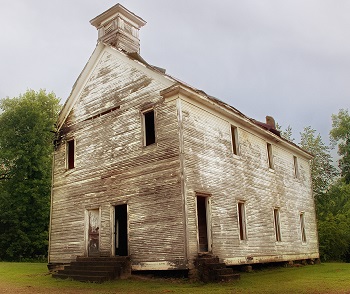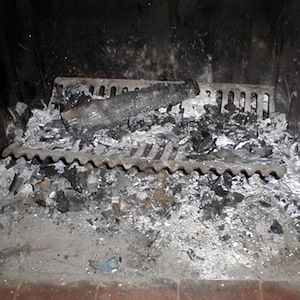Why Revivals Die Out
 Historians and statisticians say that revivals last anywhere from a few months to six years. From our study of revivals, it is clear that those statistics are quite accurate. What then causes these miraculous moves of God to die out? Is there something we can do to prolong these seasons of God’s refreshing?
Historians and statisticians say that revivals last anywhere from a few months to six years. From our study of revivals, it is clear that those statistics are quite accurate. What then causes these miraculous moves of God to die out? Is there something we can do to prolong these seasons of God’s refreshing?
We’ve listed below what two authors have said about why revivals die.
.
From Ian Malins book: Prepare The Way For Revival
Why Revivals Die
1. The neglect of revival principles, as found in 2 Chronicles 7:14.
2. Failure to move on to maturity—Christians wanting to stay in the stage of “refreshing,” and not move into “discipline” and “harvest.”
3. Opposition from Satan (ignorance of the schemes of the devil)
a. Attacked directly with despair or discouragement.
b. Plant lies, rumors and false pictures in the minds of unbelievers or unrevived Christians so that they will reject the work of God and attack its progress.
c. Set the leaders against each other and so divide and conquer.
d. Get the converts to go to extremes and so discredit the movement.
e. Produce counterfeit miracles to discredit the real ones.
4. Lack of Christlike humility and love.

No Sacrifice, No Fire
Jonathan Edwards believed that pride is the biggest thing that kills revivals. Pride is such a subtle trap because it often snares those who are most eager to promote revival. They can become proud of the revival that has come to them or their church and take the glory for themselves. But God will not give His glory to another (Isa. 42:8). Continuous revival can only thrive in an atmosphere of Christlike humility and love. When feelings of superiority, pride or personal glory come in, the glory of God departs.
5. Disunity
The Holy Spirit is the Spirit of Unity. Where Christians are bound together in love and unity, there God will command His blessing (Ps. 133). It is in an atmosphere of love, acceptance and forgiveness that the Holy Spirit works. But where there is disunity (and especially at the leadership level), the Holy Spirit is grieved and withdraws His influence. Where there are barriers between believers, the Holy Spirit cannot flow. And if disunity remains without being dealt with, the revival will quickly die.
6. Humans take control out of the Holy Spirit’s hands and set up boundaries and restrictions.
7. Lack of Bible teaching and discipleship.
8. Lack of outward local and global mission efforts.
God’s Spirit is not just given to fill us up but to flow through us. God brings revival not just for our enjoyment but for the glory of His name and the extension of His kingdom.
9. Generation Gap
Rising generations have never experienced it personally. Unless they catch the fire the revival will die
From John Kilpatrick’s book: Feast of Fire
Devil’s Five Deadly D’s
1. Doubt (you will always have doubters in every revival, but we must not allow doubt to turn into unbelief)
a. Suspicion, doubt and skepticism are all inevitable responses any time the Holy Spirit moves in a new or unaccustomed way. In fact, in revival, people almost immediately will deal with doubt. This is not necessarily a bad thing. Though some might disagree, I believe doubt can provide healthy opportunity to work through legitimate questions and concerns.
b. Doubt is quite different from unbelief.
c. Unbelief is not the state of uncertainty; rather it is the state of believing nothing at all. For the pastor, unbelief is always much more difficult to work with.
d. Unbelief paralyzes a person, keeping that individual stuck in inactivity.
e. Jesus could do no miracles [in some locations] because of unbelief. Those who doubted, Jesus knew how to deal with and alleviate their doubt to faith.
f. Israel could not enter into the Promised Land because of unbelief. They had many signs and miracles, still they chose not to believe.
2. Distractions (2 types)
a. One type is the fleshly manifestations that people use to draw attention to themselves. People will observe them and get distracted from the genuine manifestations that are taking place.
b. The other type is the distractions that Satan will bring up in lives of people who want to experience revival (homes, jobs, business, etc., things that take time and take our emphasis off of the revival).
3. Disappointment
a. It is disappointing when we enjoy the blessings and benefits of the revival, but those close to us pull away and remove themselves entirely from it.
b. There will also be satanic influenced disappointments that will take place in our lives, such as fiery trials in the home, jobs, business, etc., that will attempt to put a blanket on the fire.
c. People may get disappointed with the life that goes on after a revival. They want to stay in the presence of the Lord and just “bask.” We must teach that these times of refreshing come to help us prepare for the natural things of life, not keep us from them.
4. Discouragement
a. Wallowing in disappointment can lead to discouragement. We all go through periods of highs and lows. We must be cautious not to allow ourselves to linger in the really low places. Revival has a great potential to lead to great depths of discouragement, despondence, depression, etc., due the enormous emotional height that was experienced during the revival.
b. Discouragement is a trap and if we stay in disappointment long enough, it will lead us into a melancholy state and either makes us discouraged or depressed.
5. Defamation
a. A pastor and or church leaders have to be on guard with this, especially if they are reputation lovers. If they want people to say nice things about them and brag about them, they need to be prepared for the times their character will be called into question; otherwise, it will be the knockout punch that takes them down. Many pastors can deal with disappointment, distractions, even discouragement; but they cannot stand to look bad in the eyes of others.

